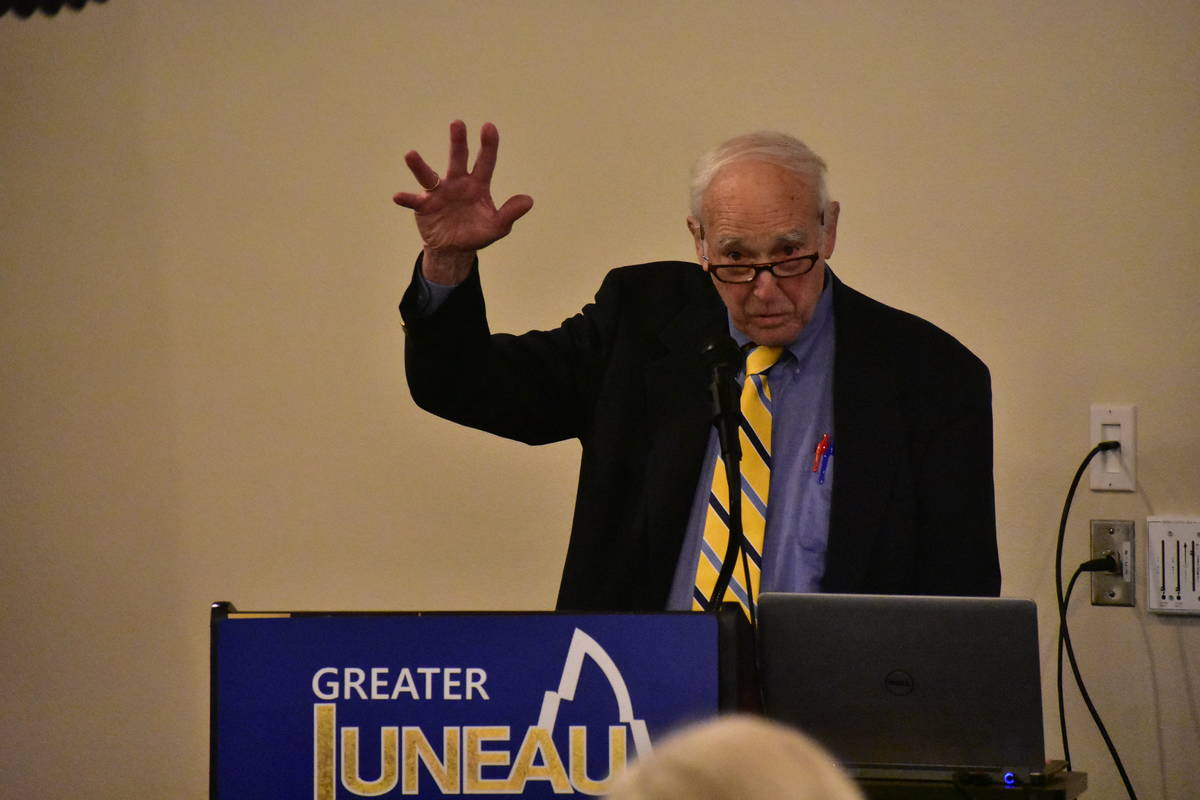A visiting doctor stood before local business leaders and community members at the Juneau Chamber of Commerce Thursday and proclaimed the free-market was failing the American people.
But only when it comes to health care.
“We have a market based system that fails to control costs,” said Dr. John Geyman, author and professor emeritus of Family Medicine at the University of Washington School of Medicine. “Perverse incentives within our market based systems, profit-driven increased costs in bureaucracy drive up costs to where many people can no longer afford it.”
Geyman has been making the rounds across Juneau to discuss the various approaches to health care being discussed at the national level.
The Affordable Care Act, also known as ObamaCare, greatly expanded the reach of health insurance in the country but it left significant gaps in coverage, Geyman said.
Health insurance under the ACA began in 2014 but “repeal and replace” has been a stated goal of a number of Republican lawmakers and President Donald Trump. States could opt out of offering insurance under the ACA and the Trump administration slashed funding for many programs that helped people sign up.
“The ACA is failing,” Geyman told a packed house at the Moose Family Lodge. Members of the audience included Mayor Beth Weldon and Assembly members, Greg Smith, Alicia Hughes-Skandijs and Wade Bryson. “So what can we do?”
There were three options as Geyman sees it. Congress can try and improve the ACA or adopt whatever health care plans put forward by Republicans. But according to Geyman, “the Republicans will come out with a plan soon, but they haven’t released any discernible plan yet.” The third option was some form of universal health care.
“If our goal is universal coverage, universal access, and I hope it is; we won’t get there with the first two options,” he said.
The problem according to Geyman, was the system of health insurance. “Private health insurance is the problem, we will never get to universal coverage so long as we have a fractured financing system,” Geyman said.
Most of the cost of private health insurance was tied up in the massive bureaucracies which administer health insurance. Health insurance companies have an administrative overhead that is five to six times that of traditional Medicare.
Furthermore, he said, the government already pays for 65% of health care costs already.
Many members of the audience needed no convincing. Ben Van Alen, a retired biologist, was already a supporter of some form of universal coverage.
“I think it all makes a lot of sense,” Van Alen said, “to take the huge middleman out of your health care is going to save money all around.”
Others were a little less convinced.
“It’s hard to say,” said Hayden Garrison, a self-employed resident of Juneau. “Just what he’s saying, ‘price is going to go down, it’s going to be easier for everybody across the board.’ I guess it seems like the right way but yet until you hear the other side of it, the cons of it, it’s hard to know what you’re really going to end up with.”
But Geyman is convinced that universal health care is the way to go, and he says that can’t be done so long as private health insurance companies stand in the way.
Universal health care is possible in the United States, he says, “if we can transition to a service-oriented ethic rather than a shareholder value focus.”
• Contact reporter Peter Segall at 523-2228 or psegall@juneauempire.com.

